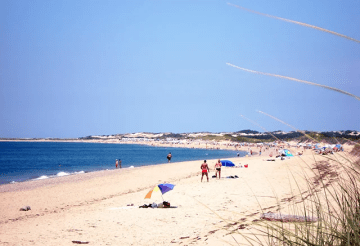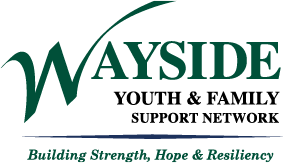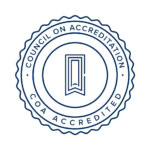Summer and COVID-19 – What’s Safe for Families?

By Lisa Gibalerio, MPH
Prevention Specialist, Wayside Youth and Family Support Services
Program Coordinator, Belmont Wellness Coalition
It’s almost 4th of July weekend when people typically flock to beaches, gather for BBQ’s, head to a swimming pool or decide to take a road trip. While businesses and restaurants are re-opening and we’re starting to return to “normal” life, many parents are wondering what they can do to have a fun, and safe, summer.
The most important thing to remember is that COVID-19 is still here, it is highly contagious, and it can be fatal especially for racial and ethnic minority groups. As of June 12, 2020, age-adjusted hospitalization rates are highest among non-Hispanic American Indian or Alaska Native and non-Hispanic black persons, followed by Hispanic or Latino persons, according to the Centers for Disease Control and Prevention. In addition to being aware of your risk factors, make sure you check how many new cases there are to make an informed decision. Massachusetts maintains and daily dashboard of confirmed cases, hospitalizations, testing and deaths.
Shifting From “Prevention” to “Minimizing Risk”
In order to “flatten the curve” and avoid a sharp increase in COVID-19 cases, we isolated to until the numbers came down. As of June Massachusetts had 114 cases down from nearly 5,000 in April. Transmission rates are lower, but that doesn’t mean we should let our guard down. We still need to be vigilant about practicing social distancing and wearing a mask anytime we’re out in public. How do we do that?
First, remember how COVID-19 spreads:
- Airborne transmission – particles spread from one person to others via coughing, sneezing, and talking, this is by far the most common means of transmission.
- Surface (“fomite”) transmission – particles spread from contaminated surfaces; this seems to be a much less significant source of transmission for COVID-19.
Core Guidelines to Keep in Mind
- COVID-19 spreads by airborne transmission in closed spaces. Avoid closed spaces and crowds as much as possible, and instead meet others in open, well-aired spaces; outdoors is best.
- COVID-19 spreads via droplets in the air and stays airborne for long periods of time. Use face masks and practice social distancing (six feet minimum — 10 feet is better) even outside to keep out of the “particle cloud” created by others’ speaking and coughing; you might pass through a particle cloud left minutes before, so keep your mask on even when people aren’t in close proximity such as in a store. Protect yourself by washing your hands with soap and water after any interactions with others.
- COVID-19 is highly contagious, and people can have the virus without showing symptoms for days — everyone is a potential carrier. Remember it’s not just about you, it’s only part of the equation. You are potentially dangerous to others around you. Think of yourself as a potential link in a chain of disease and try to minimize your role in that chain.
Summer Plans – What’s Safe/Open?
Can the kids see friends, or visit our extended family?
- Check in with parents of your kids’ friends and try to assess the potential risk they pose. Ask about their practices for the past 10 weeks, e.g., “Have you been physical distancing?” “Have you been working from home?” “Do you wear masks when outside the home?”
- Outdoors is the safest option; keep at least six feet apart.
- Wear a mask.
- Keep hand sanitizer close by.
- If you’re going to a BBQ or other event with food, bring your own, and avoid sharing serving utensils.
- Discourage sleepovers, indoor playdates or any activities that involve extended periods together in closed spaces.
- Teens and activities with friends: keep them outdoors, ask everyone to wear a mask and maintain distance.
Can my teens get a summer job?
There is no one answer, it depends on the job and the comfort level of teens and parents. There are a variety of factors to consider:
- Does the job involve crowds?
- Is the store/place of business well ventilated?
- Will your teen be able tolerate wearing a face mask their entire shift?
- Is there anyone in your family who is high risk?
Where can my family go?
Restaurants?
- Call ahead and ask if there’s outdoor seating, if the tables are well spaced and if staff are wearing masks. Restaurants in Massachusetts have opened for indoor seating as of June 22. Customers are required to wear masks except for when they are eating or seated at a table.
Backyard BBQ?
- If you’re hosting a 4th of July BBQ have a strict plan in place so that your guests won’t be too close. Limit drinking and shared food like dips and keep it to a small group.
- If you’re invited to a BBQ or other large gathering don’t be afraid to ask the host their plan for keeping people separated. Find out how many people will be there and how large is the backyard? Will masks be required? Can I bring my own food? Is there a plan for bathroom use?
- The person next to you is a bigger risk than the food according to this Washington Post article.
Beach, Pools or Lakes?
- Yes, but consider going during off hours to avoid crowds (and have a better chance of finding parking!). There’s no evidence to support that COVID-19 is transmitted through the water which lowers the risk of cooling off by the pool or shore. Beaches are a great way to get outside – there’s generally enough room to set up 12 feet away from your closest neighbor. Bathroom lines can be long – avoid crowded areas as well as public locker rooms or indoor showers. Call before you go – some state beaches are requiring groups of 10 or more to make a reservation in advance.
Hair Salon?
- Call ahead and ask about the precautionary measures that are in place. How many people will be in salon? Are chairs wiped down? Are all staff required to wear a mask? Are there partitions between stations? Do workers wear clean smocks in between each customer?
Public Transportation?
- Driving a car or riding your bike is the safest mode of transportation right now. If you are an essential worker it’s a necessity but if you plan on visiting a park in Boston, drive and spend the extra money on parking. If you absolutely have to take public transportation, keep your distance from other passengers, follow guidelines, wear a mask and sanitize before and after. Read more on the MBTA’s website here: https://www.mbta.com/covid19
Resources:
For more information about Phase II reopening in Massachusetts, visit: https://www.mass.gov/info-details/reopening-massachusetts
For more information about child care, camps and summer programs, visit: https://eeclead.force.com/apex/EEC_ChildCareEmergencyReopenInfo
More information about COVID-19: explaincovid.org

